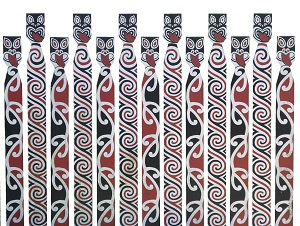

<p><img class=" alignright size-full wp-image-1465" src="http://schoolnewsnz.fastrackdev.com/wp-content/uploads/2015/05/SND15-wk1-te_reo1.jpg" alt="SND15-wk1-te reo1" style="margin: 5px; float: right;" width="300" height="226" />A new study is about to build on a seminal Māori language survey carried out in the 1970s by Richard and Nena Benton that showed that the Māori language was in a perilous state. This prompted a strong response from Māori communities and Government.</p>
<p> <!--more--> </p>
<p>&#8216;Te Ahu o te Reo&#8217; will be led by Te Wāhanga from the New Zealand Council for Educational Research (NZCER), in a contract with Te Taura Whiri i te Reo Māori.</p>
<p>The project will undertake research to measure the health of te reo Māori in homes and communities.</p>
<p>&#8220;The project will benefit Māori language communities by ensuring the best use of resources when supporting revitalisation,&#8221; acting CE of Te Taura Whiri i te Reo Māori, Poia Rewi says.</p>
<p>NZCER is excited to have the opportunity to reconnect with this earlier piece of influential work, and the project will even involve communities that took part in the original study.</p>
<p>&#8220;The innovation in this research work, when compared to the 1970s study, is that we are taking a kaupapa Māori approach,&#8221; Te Wāhanga manager and project leader Dr Jessica Hutchings says.</p>
<p>&#8220;We want to get a sense of how homes and communities are working towards re-establishing te reo Māori as a living language and normal means of communication in daily life.&#8221;</p>
<p>The 20-month-long study will focus on households in eight communities that include:</p>
<ul>
<li>high and low populations of Māori speakers</li>
<li>communities actively involved in language revitalisation</li>
<li>areas with a diverse urban Māori population.</li>
</ul>
<p>The research will explore:</p>
<ol>
<li>Where and how much te reo Māori is being used.</li>
<li>Who is using it and who they are using it with.</li>
<li>What te reo Māori is being used for.</li>
<li>Why it is being used in particular situations or not.</li>
<li>What is needed to further support communities and whānau to normalise the use of te reo Māori in homes and communities.</li>
<li>When complete, the results will inform funding and delivery of Māori language programmes, to ensure the best results for the language.</li>
</ol>
<p>The beginning of this project marks a significant milestone for He Puna Whakarauora, the research arm of Te Taura Whiri i te Reo Māori whose role it is to set the research agenda for Māori Language Revitalisation.</p>
<p> ;</p>

Since 2015, fewer students are completing secondary school, defined as remaining enrolled in education until…
As the country’s Indian population grows, so does demand for Indian languages like Hindi, Punjabi…
By promoting alternate qualifications, some schools may have undermined public trust in NCEA, explains an…
When young people immerse themselves in nature, they leave feeling physically, mentally, emotionally and spiritually…
Theatre is much more than performance. Deep skills can be developed across multiple curriculum areas,…
NZCER found generative AI tools are frequently used to support teaching and learning in primary…
This website uses cookies.